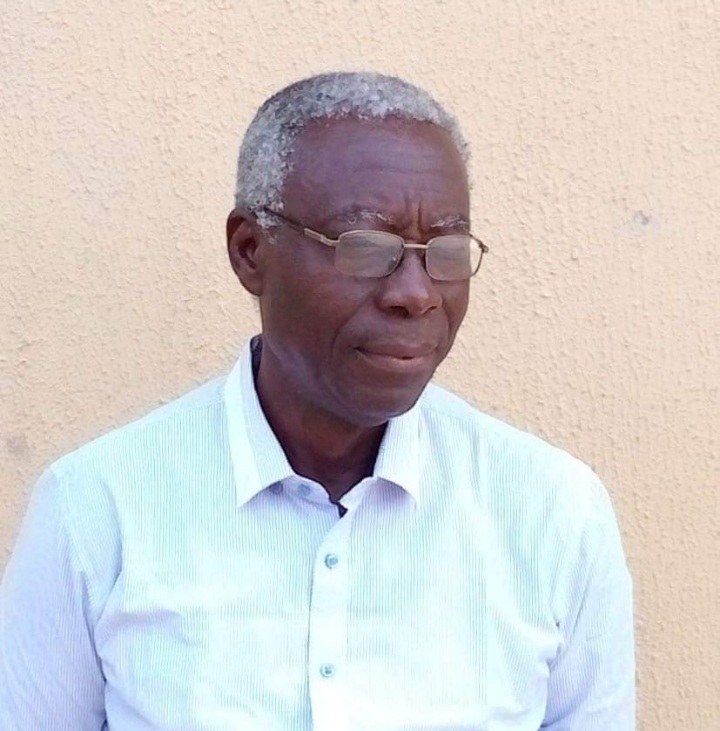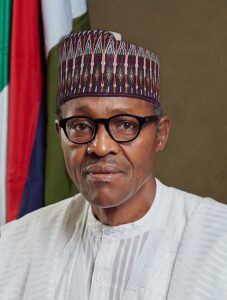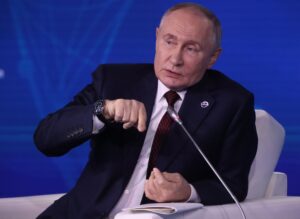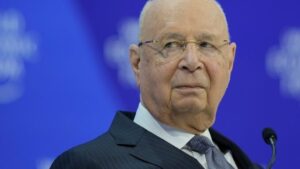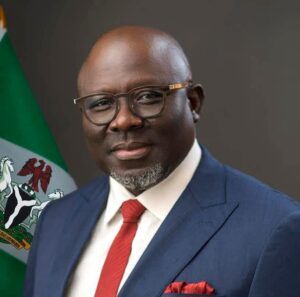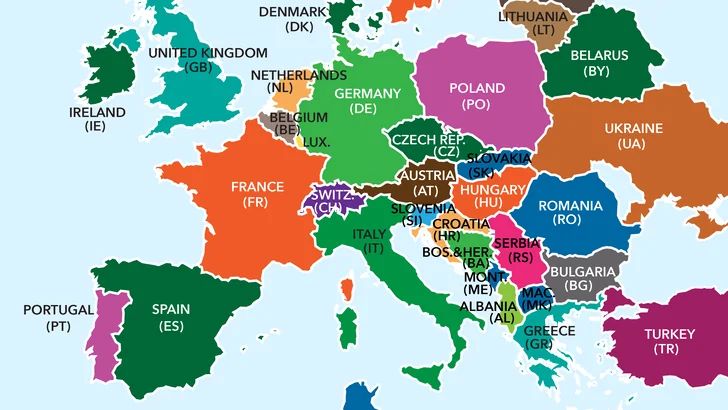
Map of countries in Europe
By Wilson Egbodje
The grueling, brutal war raging in Ukraine is a battle for the soul of Europe. The reality of the situation will become glaring when a weakened and backfooted Ukraine begins to reel in retreat. Today the war is being fought along a 1,500-kilometre frontline confined within Ukraine. If Kyiv falls to Russian forces the frontline could stretch as far as 5,000 kilometers, and that would be across Europe, not America.
[the_ad id=”16914″]
Russia is adept at fighting such wars of attrition. The power of hindsight will take the living survivors of the last Great War to Leningrad, Moscow, Warsaw, Stalingrad, etc. The West does not need to be taught harder lessons than the antecedents experienced in Europe since the Bismarckian era. History also reminds us that wars in Europe since the 18th century were always devastating continental conflicts.
Those avoidable wars were spawned by the trivialized complacency of major European nations, creating Achilles heels and weaknesses as is, again, evident today. In the resulting WW1 and WW2, the United States of America came to the rescue of European nations for what they wilfully neglected to do. American dead were 53,000 in WW1 and 416,000 in WW2.
The U.S. might again pay a higher price than previous ones if its lawmakers don’t stop bickering over weapons delivery to Ukraine.
The truth is that both wars were preceded by heavy arms build-up of aggressor nations – Germany and Italy. As U.S President John. F. Kennedy (1961-63) noted, that the Sarajevo assassination of Archduke Ferdinand that sparked off the “Guns of August” in 1914 could have been avoided had Britain and France armed themselves adequately with weapons and a steel resolve in policies that could have silently spoken volumes to Germany when it went loose with its arms build-up.
[the_ad id=”16918″]
Kennedy also pointed out that any nation relishing mass acquisition of weapons must one day want to put them into use. He further stressed that Germany ought to have been forcefully matched in rhetoric and militarisation to counter the German war machinery. However, there was a palpable uneasy peace in Europe at the time- a ruse that ensnared Britain and France as they were caught off guard.
It took the sinking of an American ocean liner, The Lusitania to pull out an enraged U.S., cocooned in its Monroe Doctrine for decades, to rescue Europe. Granted. But there was a reoccurrence of that strategic error when Nazi Germany was rearming, preparatory to its blitzing forays across Europe amidst all the rhetorics for starting another war, and European leaders led by Ramsey Macdonald of Britain went on an appeasement campaign. Again, it was the bombing of Pearl Harbour that brought the U.S. to salvage a dispirited Europe already in the chokehold of Germany and its Axis allies.
Enter the Cold War era. U.S. defence policy after WW 2 was largely double-barreled. First, Homeland security was a priority. Secondly, having paid an enormous price in manpower, equipment, and resources for each of the two world wars that Washington D.C earnestly struggled to avoid, the security of Europe became America’s major concern henceforth. After WW2 American leaders strongly advocated for the setting up of very strong international institutions to achieve that goal.
[the_ad id=”16917″]
The United Nations Organization (U.N.O) and the North Atlantic Treaty Organization (NATO) were the fruits of that effort. But the frightening thermonuclear arms race that followed has since made the world a more dangerous place than ever. With the collapse of the Soviet Union and the WARSAW PACT new defence arrangements arose across Europe. That is essentially the kernel of this discourse.
Today the U.S. in keeping with its self-imposed decision towards ensuring the security of Europe and other global military commitments is carrying the burden of the war in Ukraine. In a sense, the lawmakers seem justified in their untenable resistance to further military deliveries to Ukraine. They point out that European countries ought to do more for the security of their continent.
Former President Donald Trump who is also the Republican Party front-runner for the 2024 U.S. presidential elections has made clear that European contribution towards NATO is inadequate. This is the rallying cry on which the lawmakers hinge their position. In truth, European nations are performing below expectations. British defence spending in the years since the collapse of the Soviet Union falls short of five percent of its GDP. France has not fared any better. Germany has an economy with the requisite elasticity to commit over five percent of its GDP to defence at this critical time. The question is how committed are they to enhancing their own security?
The three countries respectively possess the strongest economies in Europe. However, only Britain and France are nuclear powers and both countries indeed combined with the U.S. to confront the Soviet Union with a deterrent nuclear force that overwhelmed it into ultimate collapse. Collectively the three ought to present an arrowhead formidable force to deter Russian aggression. The support of the other eighteen NATO nations should have presented an extraordinarily intimidating block against Putin’s threats.
[the_ad id=”16920″]
Russia’s audacious invasion of Ukraine was bolstered by its perceived military superiority over European countries. It played out first with the annexation of Crimea in 2014. That was a signal precursor of more annexations to come. Why did it not occur to European countries that there was a need to increase defence spending to match Russia’s scale of mobilization of resources toward war. They ought to know that if Ukraine falls, the destabilizing ripple effects for Europe would be monumental. The U.S. would again have to pay another price in the defence of Europe.
With the end of the Cold War in 1991 Russia continued its overall build-up in advanced conventional and nuclear military technology while British, French and German navies and airforces went into decline in number of personnel, materiel, and tactical preparedness. Perhaps the agreement to not commit boots on the ground in Ukraine by NATO countries sits well with them. In a war situation, no condition is permanent.
Ukraine military forces have been in the throes of a shortage of ammunition on the frontline in the past three months because of the bickering in the U.S. Congress. Had European countries put contingencies in place for standing the gap if the U.S. failed to meet its pledged commitments in Ukraine, the disastrous fall of Avdiivka in February could have been averted.
If Russia invades the Baltic states as is being speculated, the dynamics of war would cause non-Ukrainian blood to be spilled beyond the borders of Ukraine. Admittedly, there is a massive NATO deployment in Eastern Europe bolstered by American forces. But European nations must now strategize to independently stand up to Russia without support from America as they would be the immediate targets and victims in an expanded ground war.
It should be clear to them by now that Donald Trump from his recent statements, as in the past, is not a dependable ally of Europe. Trump has called on Russia to attack European countries spending less than 2 percent of their GDP on defence. That is an insult to their sensibilities as a collective. That is the challenge Europe must now acknowledge and address.
